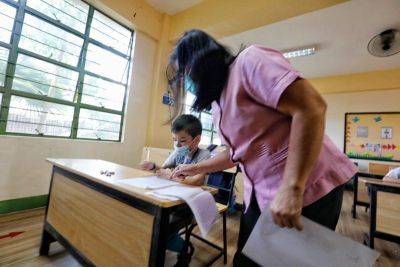Explainer: With students’ poor literacy, are all teachers now ‘reading teachers’?
MANILA, Philippines — One of the Department of Education’s most wide-scale attempts to arrest students’ declining reading comprehension skills will start on Friday with the rollout of a new weekly program, where teachers are tasked to carve out half of the day to implement everything from reading clubs to read-aloud activities.
But with the burden falling on teachers to make DepEd’s “Catch Up Fridays” a success, a University of the Philippines (UP) College of Education professor said that what spells the difference is still quality reading instruction — which not all teachers have.
“As far as education and reading are concerned, we cannot give what we do not have,” said UP College of Education faculty member Portia Padilla.
“There are studies that show that even some of our teachers who currently teach reading do not possess the basic competencies needed to teach reading,” Padilla told Philstar.com.
At least 90% of Filipino children aged 10 struggle to read or understand simple text, according to the World Bank’s 2022 data on learning poverty. But even before the COVID-19 pandemic set back students’ learning, the pre-pandemic figure pegged learning poverty in the Philippines at 70%.
For DepEd to acknowledge students’ reading problem — which has persisted through different administrations — “is a good step to take for starters” Padilla said.
But whether the program will get all students to pick up their reading material of choice every week — and improve their reading abilities in the process — is a different story, Padilla added.
Padilla, who specializes in reading and literacy education, said some teachers who are instructing beginning readers “do not know how to give the correct sounds of letters and have been teaching students the wrong sounds.”
“So students end up not learning how to read. We have teachers who do not know how to count syllables in words they hear,” Padilla said.
Citing studies conducted by international institutions and non-government organizations, Padilla said many elementary public school teachers also themselves “struggle to read beyond the Grade 6 level.”
One of these studies was carried out by private firm Cardno Emerging Markets







